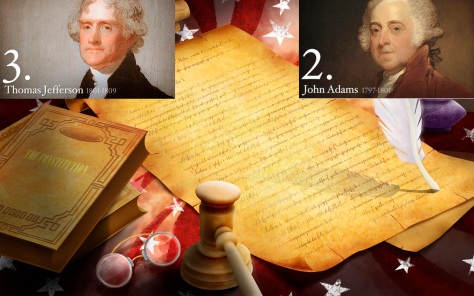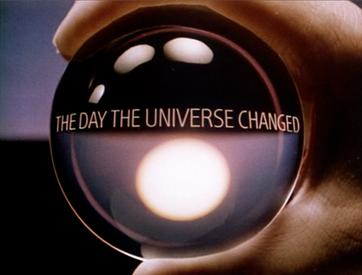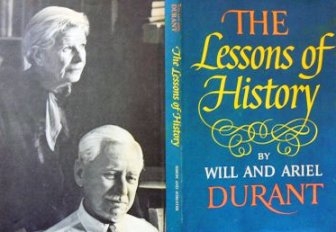
“…that we ought not to die before we have explained ourselves to each other…”
Thomas Jefferson and John Adams wrote these words in letters to each other, after both had retired from public life. Each was a founding father of the United States of America and each served as President. Jefferson, an Architect Rational, was a Virginian, tall and lanky, and a brilliant writer, but middling speaker. He relied partly on John Adams, an arrogant Fieldmarshal Rational from Massachusetts, pudgy and cantankerous, but a brilliant bulldog of a public speaker to persuade others.
This combination of the two was a very powerful dyad. The theoretical and Engineering brilliance of an Architect and the pragmatic determination of the Coordinating Rational has been seen in other pairs such as Lincoln and Grant, Einstein and Bohr, and Ulam and Teller. In this combination, these two founders helped shape the United States from the beginning based on both their temperament and character, a unique combination of personality at a crucial time in political history.
In 1800, Thomas Jefferson defeated John Adams’ reelection bid for President of United States. It was the most acrimonious election of the country’s young history, and is considered the starting point of political parties in American politics. This was an unexpected situation given that a few years earlier, Jefferson and Adams had worked well together in the framing of the Constitution and were two people tasked by Congress to write of the Declaration of Independence.
In Washington’s two terms of office was when Adams and Jefferson parted company, their visions for America differing. They became political opponents. Adams became very bitter when Jefferson defeated him in the 1800 election. Adams retired to a Massachusetts, they didn’t communicate until Madison’s second term in 1812. Their friend Benjamin Rush wrote a letter to Adams, hoping they would reconcile. Time and retirement of both seemed to heal the wounds. Adams sent the first letter and with that they proceeded to correspond for the rest of their lives: both dying on the Fourth of July, Independence Day, 1826.
So how was it they didn’t understand each other?
“On the question, ‘What is the best provision?’, you and I differ; but we differ as rational friends, using the free exercise of our own reason, and mutually indulging it’s errors.” [emphasis added]
They were Rationals, interested in theoretical solutions to practical problems. Once the United States was on a seemingly solid basis, the two began to differ in their vision of how the government of the United States should proceed. Adams was not trustful of the republican democracy and was a Federalist — more concerned with creation and protection of wealth and strengthening the central government, whereas Jefferson was not trustful with the aristocracy in the form of Federalists and preferred a more representative and more autonomous version of the electorate, Agrarian in nature. Jefferson had supported the French revolution. He even said to Abigail Adams, John Adams’ wife, in a letter: “I like a little revolution now and then.”
Jefferson explained “our difference of opinion may in some measure be produced by a difference of character in those among whom we live.” But I think that Jefferson, the Engineer, more a libertarian in nature, had a faith in the rough and tumble of local politics. He had more of a distributed notion of democracy in the form of States rights and individual freedom. But Adams, a Coordinator, viewed the educated man and the man of inheritance as equal combatants in the balance of power between different branches of government. Realizing the common man had little or no interest, or skill to be involved with government, Adam had worried about unchecked democracy.
As Jefferson surmised:
“We acted in perfect harmony through a long and perilous contest for our liberty and independence. A constitution has been acquired which, though neither of us think perfect, yet both consider as competent to render our fellow-citizens the happiest and the securest on whom the sun has ever shone. If we do not think exactly alike as to it’s imperfections, it matters little to our country which, after devoting to it long lives of disinterested labor, we have delivered over to our successors in life, who will be able to take care of it, and of themselves.”
So both Adams and Jefferson had confidence in the American Temperament to prosper.












